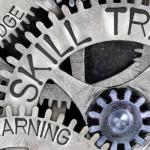How to Become More Self-Aware
Ways to Develop Self-Awareness
Developing self-awareness is an essential element for one’s personal and professional development. When working with clients, especially in one-on-one coaching engagements, I always include a 360˚Assessment of sorts, most often an interview-based 360, or Center for Creative Leadership (CCL) Benchmark 360˚ Assessment, for which I am certified. Why is this important? We all have the ability to improve our own self-awareness; we all have blind spots and even bias. To help gain self-awareness, these 360˚ Assessments are a helpful starting point.
I’m always assisting my clients with self-awareness, in every coaching session. This week, I have been actively focused on self-awareness in several different scenarios including:
- A new executive coaching engagement just launched and I’m in the process of interviewing all of the identified colleagues for this engagement. This executive is eager to jump in and start to learn how she can leverage her strengths and identify her areas of opportunity for continued growth.
- I’m honored to be working with a group of established managers from a diverse array of large companies who are all embarking on a 360˚ journey. When speaking with them about the 360˚ process and our future work together, I was inspired by their curiosity! Though some mentioned it’s possible they may hear some hard feedback, they want both positive and negative so that they can learn and develop into stronger and more effective leaders.
- I led a webinar this week on staying present. Without becoming more self-aware of what gets in our way of being able to stay present, or what distracts us, it is that much harder to work to improve our ability to stay present. We talked about how we might be perceived if we are not present, for example in a meeting; whether one-on-one, or in a group meeting. Once one realizes the impact they have on others when not remaining present and/or focused, it becomes that much more important to them to build that skill. And with this example, we discussed ways to best learn about how others experience you. One simple way is to ask – and make it safe for others to provide honest feedback.
Self-awareness is the first step in one’s ability to develop. And to receive helpful feedback to aid in one’s self-awareness, it’s critical to have trusted relationships.
One of the frustrations I had as a younger professional is the lack of helpful feedback I received from my managers. I used to tell my managers that I appreciated the praise, but I needed them to provide me with feedback in the areas that needed improvement and focus – for my own growth and development. Providing difficult feedback is often uncomfortable for managers. When working with leaders who struggle to give helpful feedback, I challenge them to consider different perspectives, including what their direct report might be hoping for.
Where to Focus
What are areas in which to become more self-aware for your own personal and professional growth? Yes, understanding and leveraging your strengths is a fabulous focus. And identifying areas of opportunities is also important. Start to explore:
- How you show up | how you’re perceived | presence
- Your communication style | communication preferences | communication habits
- How you handle conflict | conflict style
- Your triggers | what triggers you to behave in ways you may not want to
- Your biases
- And more…
What do you find helpful for you to gain more self-awareness? How have you used the information you gather to your benefit?
If you’re interested in learning more about different tools to offer within your organization to help individuals gain self-awareness, or if you yourself are looking to learn more for yourself, let’s connect.
“Self-awareness gives you the capacity to learn from your mistakes as well as your successes. It enables you to keep growing.” – Lawrence Bossidy






